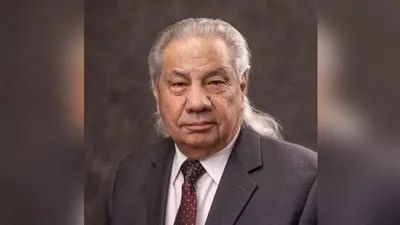The Native American Rights Fund (NARF) has released its 2024 Annual Report, offering a comprehensive overview of the organization's activities and achievements over the past year. The report highlights NARF's commitment to its five guiding principles: preserving tribal existence, protecting tribal natural resources, promoting Native American human rights, holding governments accountable to Native Americans, and developing Indian law while educating the public about related issues.
This year's report includes a feature on storytelling through woodcarving by Hopi artist Mavasta Honyouti. Executive Director John E. Echohawk reflects on NARF's 54 years of service as a national Indian legal defense fund, emphasizing significant legal victories achieved in 2024.
One highlighted case involves the closure of the Kuskokwim River fishery in Alaska due to a salmon crash in 2021. NARF intervened on behalf of subsistence users after Alaska challenged federal preferences for rural subsistence under the Alaska National Interest Lands Conservation Act. A court ruling favored NARF’s clients, though Alaska has appealed.
In another notable case from 2023, NARF opposed a Supreme Court review after the Environmental Protection Agency denied a permit for Pebble Mine in Bristol Bay, which could affect salmon runs crucial to many Tribes. The Supreme Court declined to review EPA’s decision.
NARF also engaged with the Bureau of Land Management regarding mineral or gas development impacts on Alaskan Tribes and supported treaty rights for hunting lands in Wyoming through Crow Tribe v. Repsis.
Further achievements include participation in water rights adjudication for the Confederated Tribes of the Colville Reservation and support for hair style protections under Texas' CROWN Act. Additionally, NARF challenged discriminatory voting laws affecting Montana Tribes and addressed addressing and mailing issues within Indian country through reports and videos.
NARF continues its involvement with international intellectual property negotiations at WIPO and defended Tribal consortia's sovereign immunity in Ito v. Copper River Native Association.
Echohawk expresses gratitude to supporters whose contributions enable these efforts toward justice for Native Americans.









